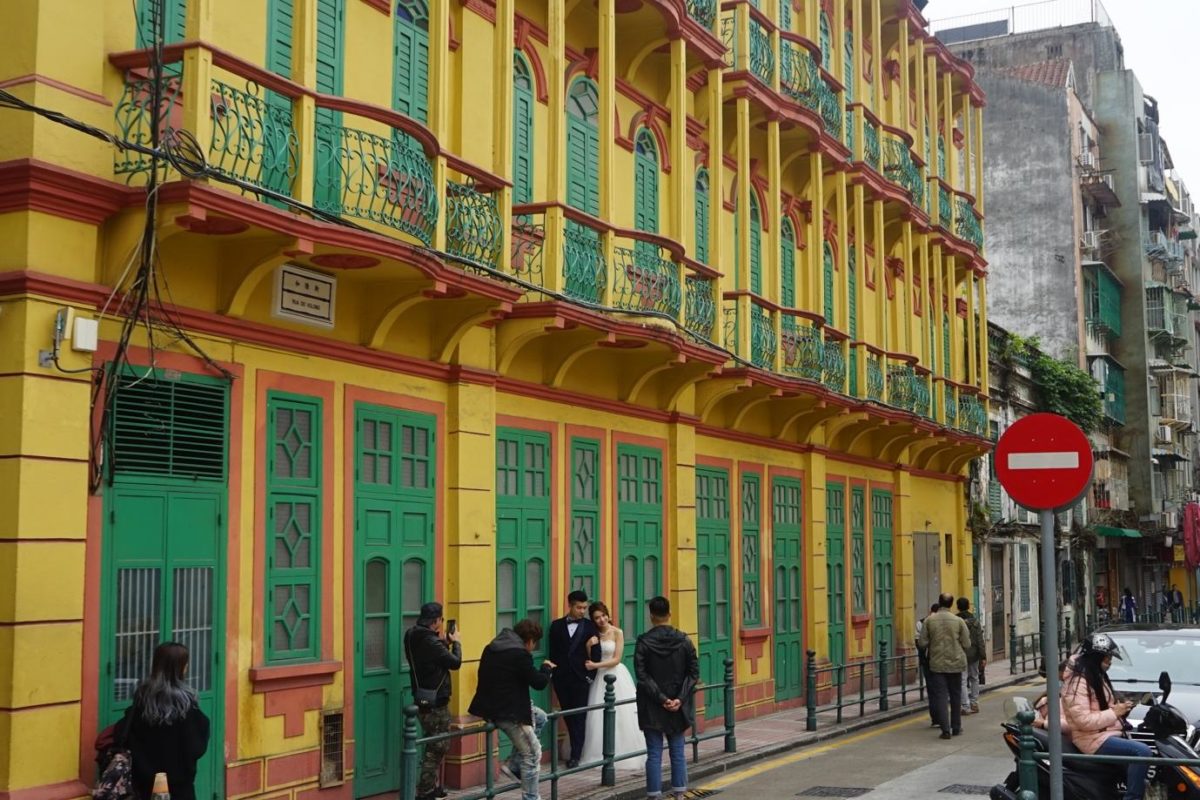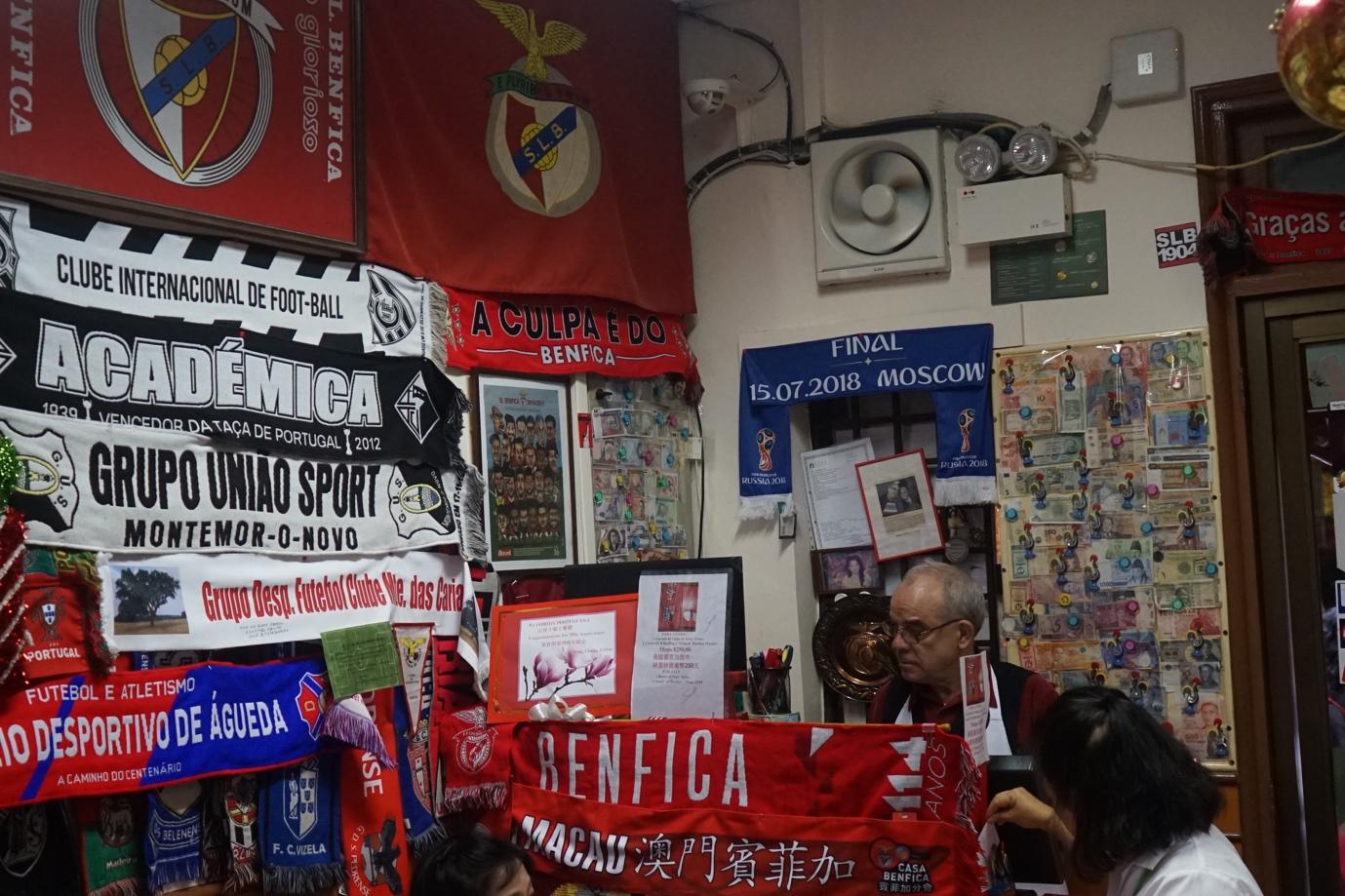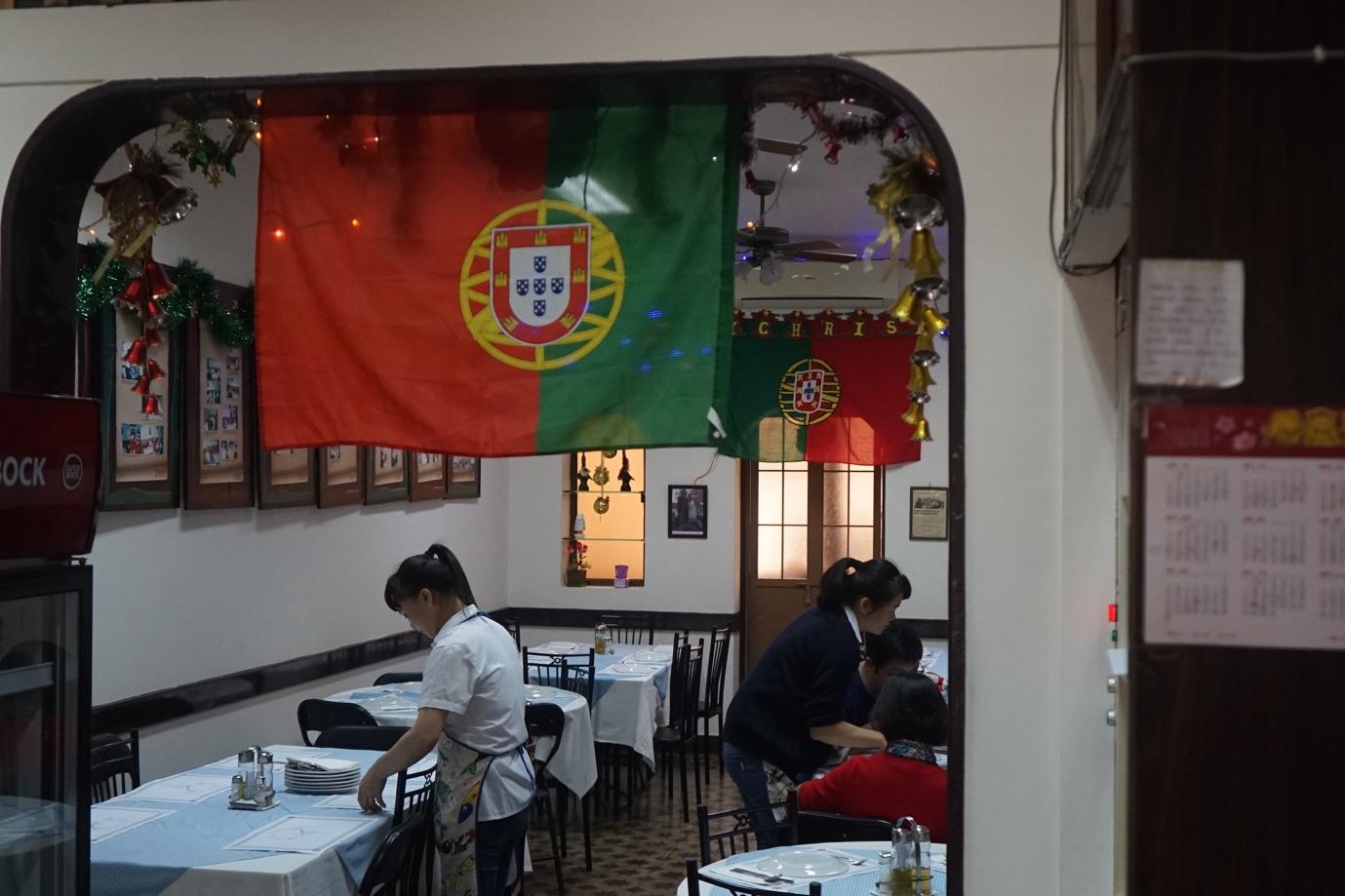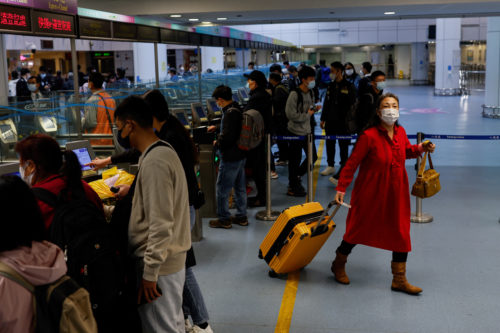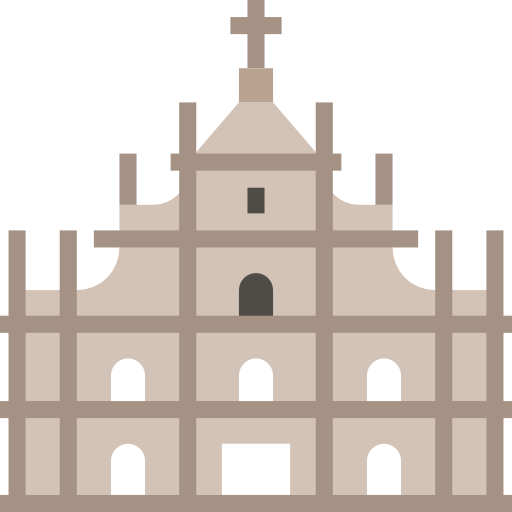
11:59 pm, December 19, 1999. In front of the Leal Senado, the colonial government’s seat in Macau for almost two centuries, crowds of Chinese look expectantly at the New Year-type countdown being played on a giant screen. Except for 25-year old Carlos Lobo and his family, there were no other Portuguese in sight.
3, 2, 1, Macau has returned to the homeland! At that moment, a black curtain fell over the Leal Senado’s marble pediment, covering the flag of the Municipality of Macau and its notorious motto “City of God’s Name Macau, There is No Other More Loyal.”
The longwinded and religious moniker was bestowed by King John VI of Portugal in 1810 as a reward for the colony’s refusal to recognize Spain’s sovereignty during the Philippine Dynasty that occupied Portugal between 1580 and 1640; this was also when the iconic building earned its name — “Leal Senado” is Portuguese for “loyal senate.”
As hundreds of Chinese families erupted in joy, Lobo and his family were sullen: the curtain had fallen on a centuries-old chapter of Portuguese history — and their own lives.
Nowadays, even if the symbol of Macau’s former loyalty to the Portuguese crown is nowhere to be seen, the legacy of Portuguese rule is still evident — from the ground up. One can almost feel the cool breeze of the Portuguese Atlantic coast when looking upon the pink, turquoise, and cream-colored storied houses clustered around the Fountain of Lilau, where the first Portuguese settled in the early 16th century.
All of Macau’s sidewalks are made up of uneven cobblestones, or calçada in Portuguese; inconvenient for anyone wearing high heels, but oozing of the same rustic charm as the old neighborhoods of Lisbon and Porto.
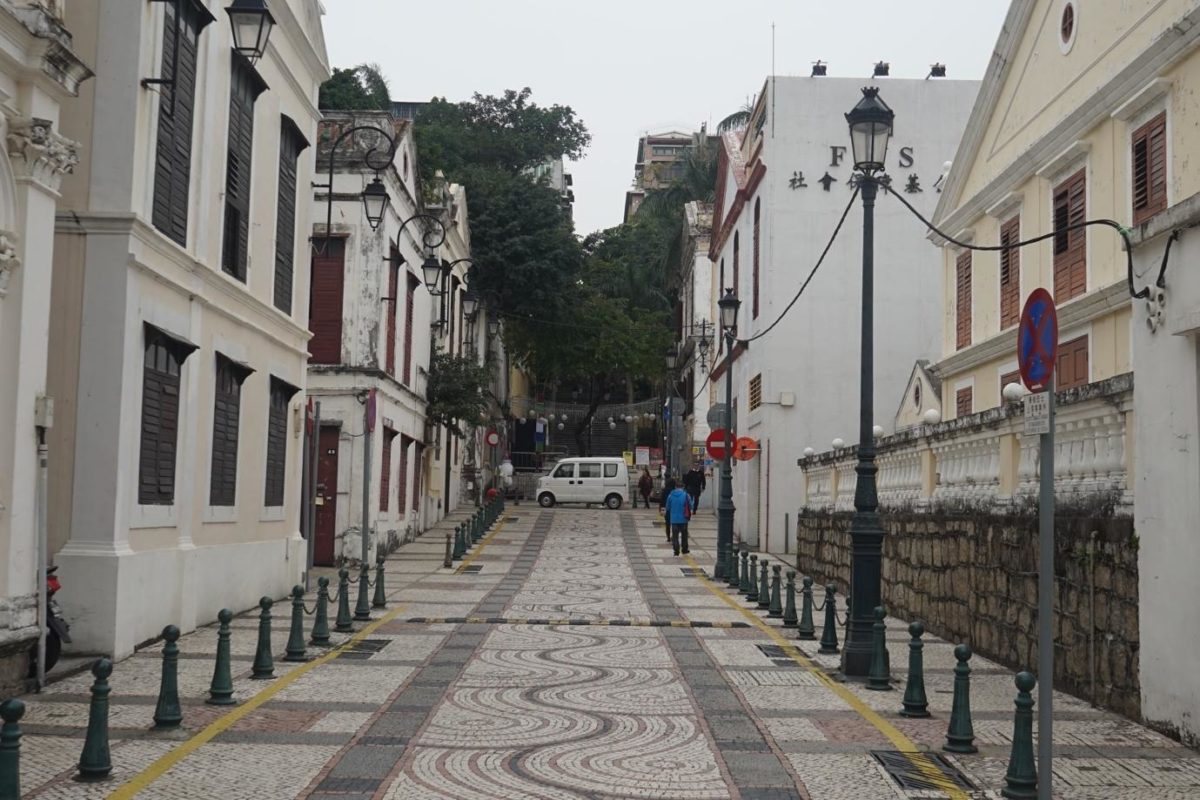
It’s not just the buildings of Macau that are imprinted with a Portuguese identity — so are the people. Carlos Lobo is married to a Macau-born Chinese, and while the label “Macanese” is reserved for those with a Sino-Portuguese bloodline (she can only call herself “person of Macau” — aomenren), there are a surprisingly large number of those within Macau’s 622,000 residents who qualify.
Between 1976 and 1982, the Portuguese constitution, influenced by the rush of progressive thinking behind the Carnation Revolution that toppled the country’s right-wing authoritarian regime in 1974, conferred Portuguese nationality upon anyone born on Portuguese soil. This meant that almost all ethnic Chinese born in Macau during this timeframe became Portuguese citizens, producing a curious statistic: Out of the 150,000 Portuguese nationals currently residing in Macau, only around 3,000 — or 2 percent — are ethnically Portuguese.
“My wife has Portuguese citizenship because of this legislation,” explained Carlos, now 44 and father to two children. “But her older and younger sister, who were born before and after this six-year window, respectively, missed out.”
Had the Portuguese government not amended its constitution in 1982, under the logic that Macau was actually merely “administered” by Portugal, this discrepancy would have been much higher. Nevertheless, veteran Portuguese foreign correspondent Arnaldo Gonçalves boasted in a 2017 interview that those six years were proof that “[the Portuguese] were profoundly different and better than the British, who gave [Hong Kong natives] second-class passports.”

Lobo’s lived experience of colonial Macau, though, suggests Portuguese colonialism often made itself felt. An exception within the expat community, Lobo only made friends with Chinese and Macanese on account of the disdain he felt toward the elitist attitudes held by many of his compatriots who “didn’t understand Macau was never our land.”
“There was one time the son of someone very important climbed on top of a taxi and started dancing. It was broad daylight and he wasn’t even drunk!” Lobo shakes his head in exasperation. “The driver, getting ready to take him down, was intercepted by a passerby who told him, in Chinese, ‘Don’t do anything, he’s the son of…’ so he had to simply wait until that idiot stopped ruining his car.”
Nevertheless, even Lobo is adamant about differentiating Portuguese colonialism from its European counterparts.
“Portugal didn’t take Macau from China,” he declares. “We ended up governing this place because Portuguese ships helped the [Ming Empire] clean up piracy in Macau.”
“Hong Kong, on the other hand, is the result of the Opium War, of foreign aggression,” he adds.
Although the earliest origins of Portuguese Macau are still a matter of recurring historical debate, it is undeniable that both autonomous territories share as many differences as they do similarities. For one, Macau’s 30-square-kilometer area is almost 40 times smaller than Hong Kong, fostering a much tighter civil society, as well as a complete absence of an independence movement and political parties, the last of which is a defining feature of its much larger neighbor.
“Most of the Hong Kong population identify themselves as ‘from Hong Kong’ but not ‘from China,’” says Gary Ngai, who was vice director of Chinese Radio Macau station during the 1980s. “But to most people in Macau, ‘Macanese’ and ‘Chinese’ are interchangeable.”
The autonomy granted by Beijing under the “One Country, Two Systems” principle, though, remains palpable. Macau’s free press, especially Portuguese-language publication Macau Today, is able to get away with a host of op-eds and articles that would be erased within seconds on the mainland internet. Although Carlos Lobo’s mobile provider is China Telecom, the +853 handle that precedes his and all other phone numbers in Macau grants him access to a slew of websites that are blocked in the mainland.
Macau’s legal code, the Lei Básica, or “Basic Law,” remains separate from that of the mainland, broadly based on the Portuguese civil system, explaining the consistent presence of several hundred Portuguese lawyers in the ex-colony; Carlos Lobo is one of them.
“Naturally, the Basic Law is also written in Chinese,” Lobo explains, “but no translation is perfect, so Portuguese lawyers have an advantage over their Chinese counterparts in interpreting it.”
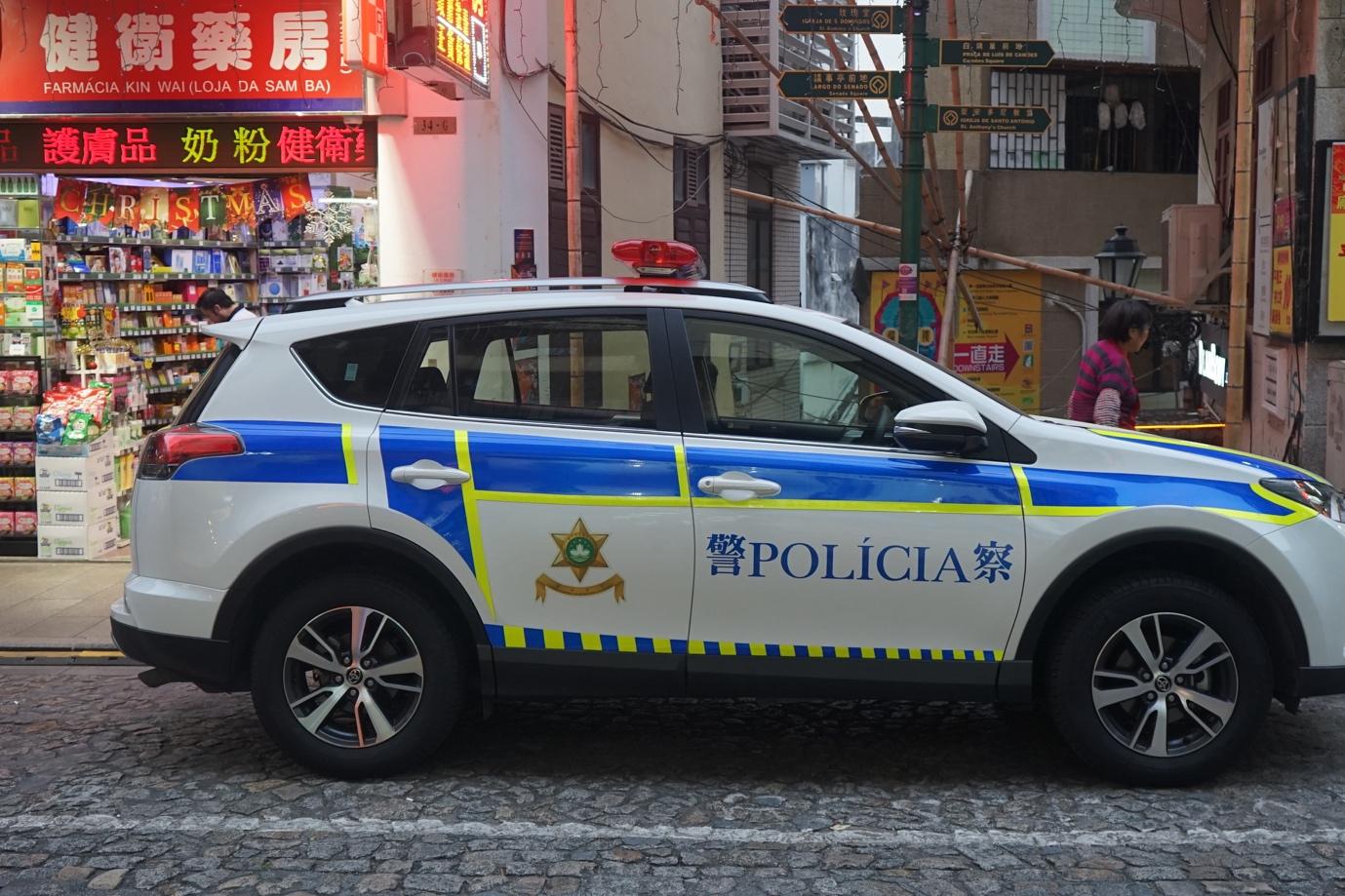
More broadly speaking, Portuguese language continues to be a valuable currency in the eyes of Macau’s Chinese residents. During most of Portugal’s 450-year governance of Macau, the ruling authorities depended on mixed Chinese-Portuguese residents, the so-called Macanese, as intermediaries to the local populace.
But after the Sino-Portuguese Declaration of April 13 1987, which finalized the technicalities of Macau’s handover, thousands of Macanese, fearful of reprisals from the new Chinese administration, began emigrating to Europe and North America every year.
Alarmed, the Portuguese government responded by pumping money into language teaching, to prepare their Chinese successors for the post-1999 order (this was how Lobo’s father, a Portuguese teacher, found an opportunity to start a new life in Macau in 1989). Thousands of middle-class Chinese jumped at this opportunity to advance their careers and diligently studied the language.
“In the 90s, it was much more useful to be closer to Portuguese culture rather than Chinese,” Lobo recalls.
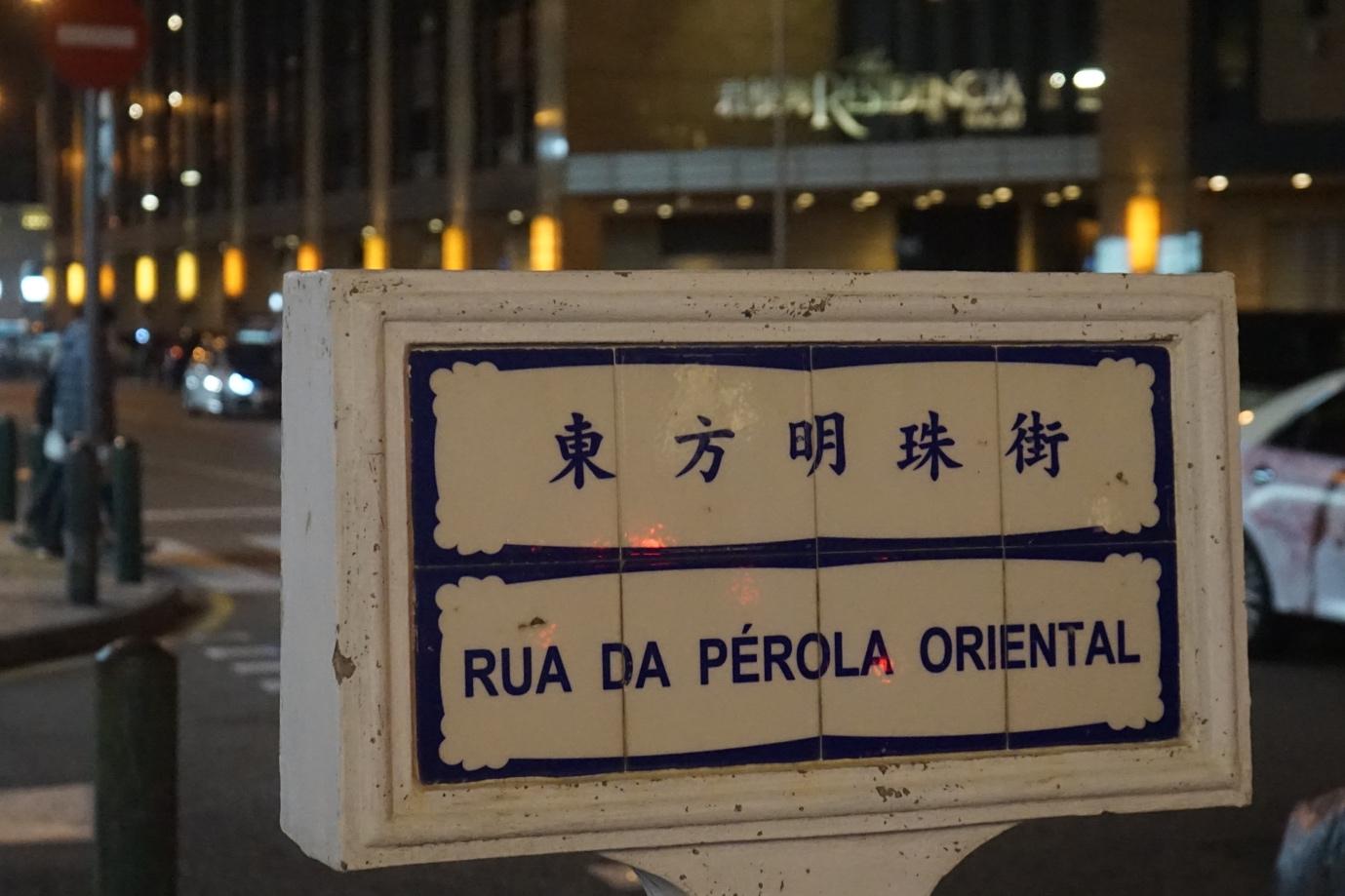
Two decades after the handover, Portuguese culture continues to be highly regarded by Macau’s Chinese population. Nowadays, thousands of teenagers in Macau vie for positions in Portuguese-Chinese interpreting and translation degrees in one of the region’s four universities. While foreign language students in the mainland are increasingly applying for jobs unrelated to their major, the high demand for Portuguese-Chinese interpreters means “graduates from these degrees will have some of the highest salaries in Macau,” according to 57-year old Yu Xiang, a Portuguese language instructor at Macau Polytechnic University.
This demand for Portuguese language proficiency is only set to increase: Macau Chief Executive Chui San On made it clear in a June 2017 speech that he intends to turn Macau into the springboard from which Xi Jinping’s “One Belt, One Road Initiative” can project itself onto the Lusophone world — even if few millennial interpreters are willing to follow suit.
“I am completely against going to a Portuguese-speaking African country,” says 21-year old Shanghai native Chen Jiahui, a Portuguese-Chinese translation undergraduate. “Employment opportunities [in Macau] are plentiful.”
Although these graduates have access to a global job market — language-learning magazine Babbel recently estimated the total number of Portuguese speakers to be around 260 million — it is no surprise that the vast majority would rather work in Macau; citizens and permanent residents of this autonomous region have arguably one of the best social safety nets in the world.
Since the 1960s, when the gambling industry saw its breakthrough in Macau, between 40 to 50 percent of government revenue came from gambling taxes. But after 2002, when the government liberalized the market for casino development by ending the decades-long monopoly of one syndicate, gambling taxes formed 70 percent of government revenue, leading to an enormous surplus for the past 17 years — so much that since 2008, the government has distributed increasingly large one-off cash handouts to all its citizens and permanent residents come Spring Festival; this year the handout was the largest yet: 10,000 Patacas (Macau’s own currency), or around $1,245.
This is but one of the many perks that would make neighboring Hong Kong residents green with envy: free schooling before university, free healthcare for those under 18 and over 65, as well as a generous pension fund that every citizen is eligible for after hitting 65, even those who have never worked a day in their life. To rub salt on the wound, Macau’s GDP per person in 2016 was 554,619 Patacas ($73,187), among the highest in the world and 68 percent higher than in Hong Kong.
These policies have helped to offset a whole host of issues created by the 21st century boom of Macau’s casino economy. In 2014, Reuters reported that the price of an average apartment in Macau (around $500,000) outranked Hong Kong, already among the most expensive in the world. Although the regional government will roll out a policy next year that draws lots for 4,000 affordable homes, some have already lambasted this as being too sparse a supply for the current market demand. As one common saying in Macau goes, “Since I can’t buy a house, I might as well buy a car.”
“Once you drink from the Fountain of Lilau, you will never leave Macau.” —António Faria
“If you talk to the older generations, they’ll tell you that life back then was better, more peaceful,” says Macau-based Portuguese filmmaker António Faria, director of Os Resistantes (“The Resisters”), a series of short black-and-white film portraits that aim to record the stories of those in Macau’s old shopkeepers and tradesman for posterity. Since the filming of the first and second season in 2015 and 2017, respectively, many of these shops have closed down.
“Whenever there is a typhoon, these stores and elderly citizens fade away,” Faria continues. “All that’s left are memories, which need to be put into an archive.”
Memories like that of 76-year old Chinese tailor “António Manuel,” whose typically Portuguese name and eloquent (if poorly-conjugated) Portuguese earned him the swankiest clientele of colonial Macau for over half a century. From the elderly ladies in the Red Market who still understand batatas (potatoes), alface (lettuce), and any other vegetable in Portuguese, to the unique greeting of the Macanese in their Patois dialect (filho di kem? — “whose son are you?”), Faria believes Macau’s Sino-Portuguese culture should be shielded from the ever-increasing darker shadow cast by Macau’s leviathan luxury resorts and high-rises.

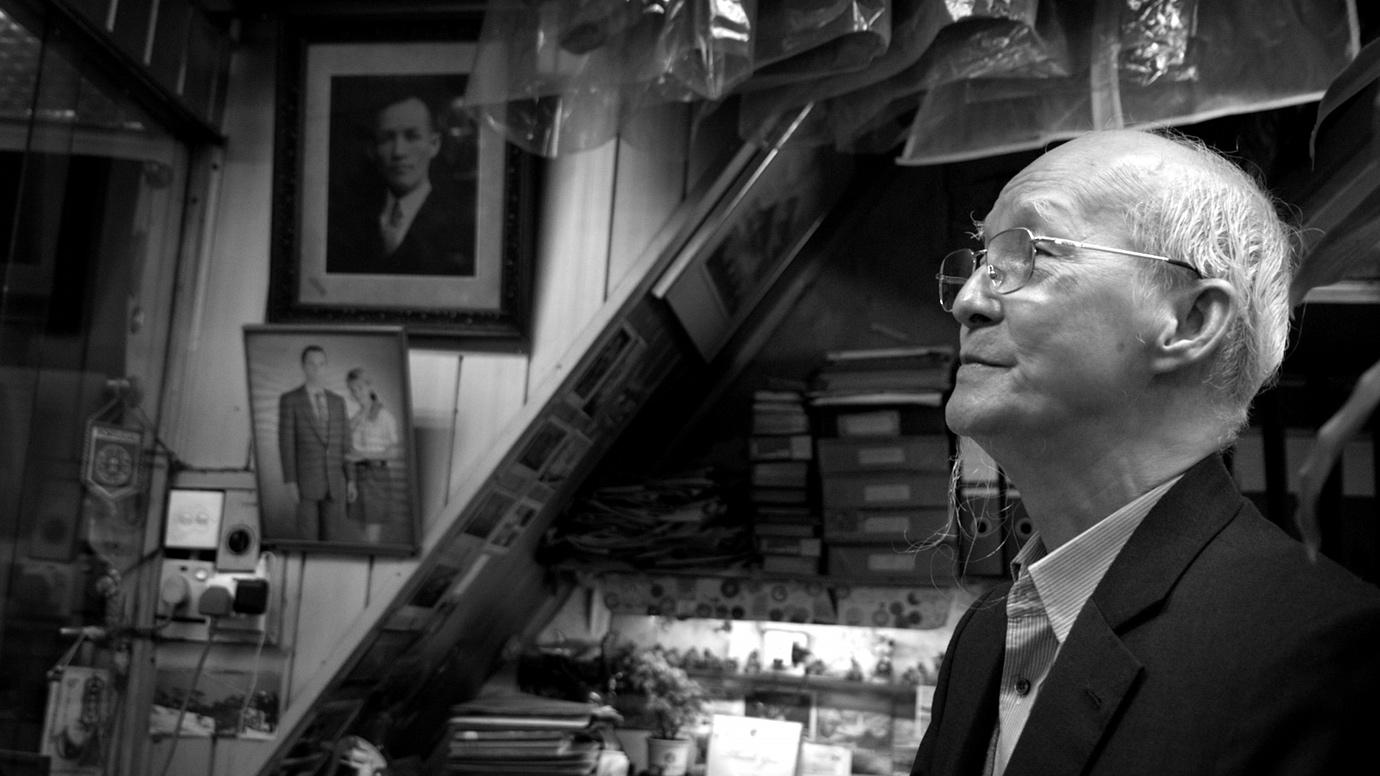
There’s a noun in Portuguese that is used to express a painfully profound longing characteristic of Portuguese temperament, the kind one might feel when telling such tales of a bygone era: saudade.
Throughout the half-millennium Macau was under Portuguese rule, it was home to uprooted literati who produced some of the finest works in Portuguese literature: Luís Camões, author of 16th-century epic The Lusiads, is known to have written his finest sonnets in a grotto in Macau; Camilo de Pessanha (1867-1926) built an illustrious academic career in Macau while writing poems that used Chinese traditional arts, such as the stringed pingtan, as symbols for the vicissitudes of life; playwright Altino de Tojal’s Stories of Macau (1987) humorously characterizes the different kinds of Portuguese expats, from the evangelizing friar to the perpetual adventure-seeking sailor with a penchant for embellishing tales.
The Macau immortalized by these men evokes saudade in Faria, who channels this emotion to carry on this tradition of Portuguese storytelling in this outpost, 7,000 miles away from Lusitanian territory.

Fado, a Portuguese genre folk music, is how restaurant owner Santos Pinto mourns Portuguese Macau’s slow withering. The unassuming but homely tavern is a dying breed amid the casinos’ insatiable appetite for land, but Santos, who arrived in Macau in 1984 as a navy cook and never left, is adamant on preserving the old-school décor of his restaurant: black-and-white photographs of colonial Macau adorn the wall, along with portrait shots of Santos in full sailor uniform.
Like in any true Portuguese tavern, these memorabilia are often peeking out of football scarves; Pinto’s partisan love for Benfica, one of Portugal’s biggest football clubs, led him to endure years of tomfoolery from fellow compatriots who would congregate at his restaurants on a weekly basis to watch rebroadcasts of soccer matches.
“What a bunch of slobbers,” recalls Pinto, who made the executive decision to close his restaurant on game nights after burning out from work.
“Another coffee Santos! Sort me out with some whisky Santos!” mocks Pinto, reenacting the rowdy crowd’s antics. “I couldn’t catch five seconds of a football game with that bunch.”
Even without the soccer, the 69-year old’s restaurant has earned praise far and wide for recreating dishes that working-class Portuguese consume on a daily basis. He grins as he narrates the story of how a group of Chinese tourists walked past his restaurant, greeting him enthusiastically but not the celebrity he was talking to, Rolling Stones’s lead singer Mick Jagger; the crunchiness of Pinto’s Lisbon-style duck rice was a favorite among other chart-topping artists who have eaten at the tavern.
“Before ’99, over 90 percent of my clients were Portuguese,” he recalls. “Cantonese would come in and gasp ‘gam do gwai lou!’ (so many foreigners!), and then leave.”
Nowadays, it’s Pinto’s compatriots who find themselves befuddled at the sight of so many Asian faces in such a typically Portuguese-looking restaurant. Moreover, this new clientele does not linger for several hours, as their Iberian predecessors; they prefer to gobble down egg-topped steaks and juicy pig chops before running off to the casino resorts that are a stone’s throw away.

Pinto has gamely kept up with the times, learning basic Cantonese after the handover and making sure he is aware of what dignitaries eat and drink when they stay in Portugal; to commemorate Xi Jinping’s state visit to Portugal in December 2017, Pinto had on offer a few bottles of Meandro, the red wine served at the welcome dinner held in honor of Chinese leader.
But the breakneck speed of Macau’s development sometimes leaves Pinto yearning for the lazier days of yesteryear.
“Tourism has grown in quantity, but not quality,” Pinto notes, slightly sadly, before describing how he has grown weary of dealing with tourists, mostly those from mainland China who come into his restaurant, peruse a menu while playing on their phones, or, even worse, changing a baby’s diapers, then leave without a word.
His restaurant has increased profits yearly, much of it thanks to the nearby casinos, but Pinto is no fan of the gambling economy’s excesses. He lets out a string of curse words when narrating that time a resort manager offered him 150 million patacas ($18.6 million) for his restaurant, almost 40 times the purchase price. Just then, a longtime Macanese client who had been eavesdropping joins the conversation:
“These kinds of crazy things happen every day; I bought my house for a trifle and sold it for 8 million patacas last year!”
“We have saudade of our life in the past,” he continues wistfully. “But I’m planning on leaving soon — all my family is in Portugal while here I only have my wife and Santos.”
Pinto, meanwhile, is not planning on retiring anytime soon. Despite being born and raised in the Portuguese countryside, 35 years in Macau have acclimatized him to a quicker pace of life. Married to a Filipino immigrant, Pinto only goes back twice a year — and when he does he feels out of place.
“Whenever I go back (to Portugal) for a few days, I have saudade for Macau.”
Pinto is but one of countless Portuguese who have fallen in love with this small corner of China and decided it had everything they needed: money, new experiences, and a slice of home.
Faria encapsulates Macau’s charm in one saying that has been bandied about the community for centuries: “Once you drink from the Fountain of Lilau, you will never leave Macau.”
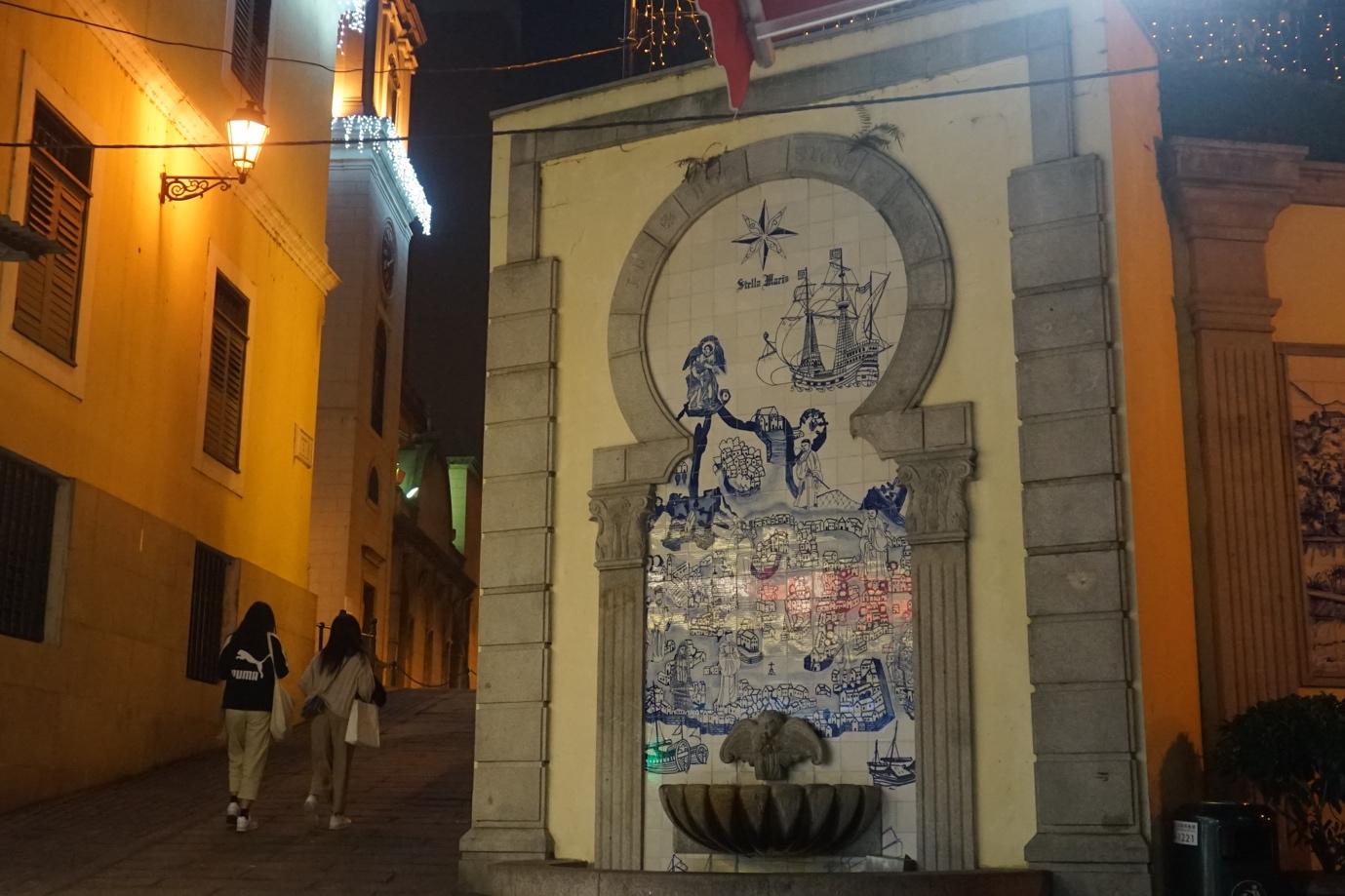
1:13 am, December 20, 1999. As the Lobo family strolled past the Portuguese School on the way home, they stopped in their tracks upon noticing the Portuguese flag still fluttering, high and proud, on the pole by the school’s entrance. The sound of screeching tires soon jolted the family out of their daze as four men in black jumped out of a car and began pointing at the flag, cursing in Cantonese. Carlos Lobo’s younger brother, predicting what was to come, calmly walked over to the pole and pulled the flag down himself.
“We weren’t going to let them cause a scene and make us lose face,” Lobo said, chuckling at how deeply his family had absorbed Chinese cultural mores while maintaining, deep down, their Portuguese identity.


